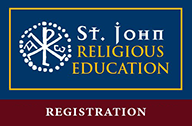Bulletins
December 6, 2015
Download the Bulletin as a PDFThe beginning of a new liturgical year of Catholic worship...
The beginning of a new millennium of Christian history...
Either way, Pope St. John Paul II set forth a fitting plan of action in Ecclesia de Eucharistia:
To contemplate the face of Christ, and to contemplate it with Mary, is the “programme” which I have set before the Church at the dawn of the third millennium, summoning her to put out into the deep on the sea of history with the enthusiasm of the new evangelization. To contemplate Christ involves being able to recognize him wherever he manifests himself, in his many forms of presence, but above all in the living sacrament of his body and his blood. The Church draws her life from Christ in the Eucharist; by him she is fed and by him she is enlightened. The Eucharist is both a mystery of faith and a “mystery of light”.3 Whenever the Church celebrates the Eucharist, the faithful can in some way relive the experience of the two disciples on the road to Emmaus: “their eyes were opened and they recognized him” (Lk 24:31)....
By proclaiming the Year of the Rosary, I wish to put this, my twenty-fifth anniversary, under the aegis of the contemplation of Christ at the school of Mary. Consequently, I cannot let this Holy Thursday 2003 pass without halting before the “Eucharistic face” of Christ and pointing out with new force to the Church the centrality of the Eucharist. From it the Church draws her life. From this living bread she draws her nourishment. How could I not feel the need to urge everyone to experience it ever anew?
The Eucharist, as Christ's saving presence in the community of the faithful and its spiritual food, is the most precious possession which the Church can have in her journey through history. This explains the lively concern which she has always shown for the Eucharistic mystery, a concern which finds authoritative expression in the work of the Councils and the Popes. How can we not admire the doctrinal expositions of the Decrees on the Most Holy Eucharist and on the Holy Sacrifice of the Mass promulgated by the Council of Trent? For centuries those Decrees guided theology and catechesis, and they are still a dogmatic reference-point for the continual renewal and growth of God's People in faith and in love for the Eucharist. In times closer to our own, three Encyclical Letters should be mentioned: the Encyclical Mirae Caritatis of Leo XIII, the Encyclical Mediator Dei of Pius XII and the Encyclical Mysterium Fidei of Paul VI.
And so the beginning of a new reading list...
God bless you!
Fr. Christopher J. Pollard



